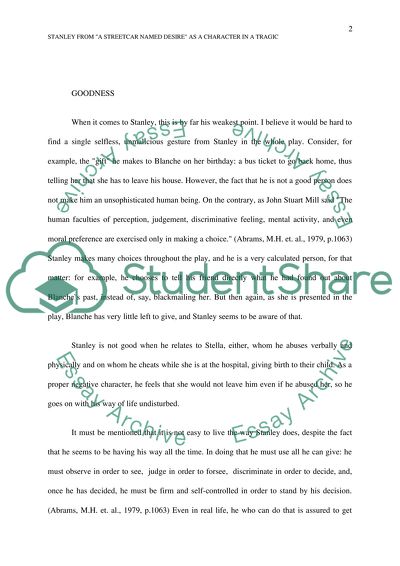Cite this document
(“Stanley from A Streetcar Named Desire as character in a tragic Essay”, n.d.)
Retrieved from https://studentshare.org/literature/1430692-stanley-from-a-streetcar-named-desire-as-character-in-a-tragic
Retrieved from https://studentshare.org/literature/1430692-stanley-from-a-streetcar-named-desire-as-character-in-a-tragic
(Stanley from A Streetcar Named Desire As Character in a Tragic Essay)
https://studentshare.org/literature/1430692-stanley-from-a-streetcar-named-desire-as-character-in-a-tragic.
https://studentshare.org/literature/1430692-stanley-from-a-streetcar-named-desire-as-character-in-a-tragic.
“Stanley from A Streetcar Named Desire As Character in a Tragic Essay”, n.d. https://studentshare.org/literature/1430692-stanley-from-a-streetcar-named-desire-as-character-in-a-tragic.


